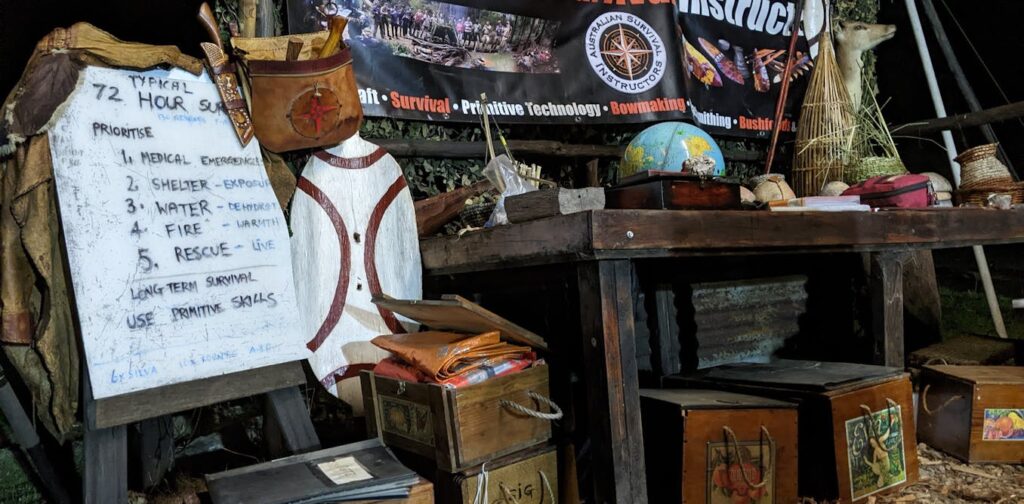
Speculation swirls around fugitive Dezi Freeman, accused of double murder, and his potential ties to prepper groups and doomsday beliefs. Questions have arisen about whether he might be hiding in a homemade underground bunker. The situation has prompted discussions about the nature of prepping in Australia and its impact on the culture.
One Facebook user in a prominent Australian Preppers group expressed concern:
“I don’t like that the prepper community will now be made to look nuts again […] There is zero reason to shoot at police […] We may disagree with some laws but we are also not the law.”
This sentiment highlights the need to explore what prepping means in contemporary Australia.
The Landscape of Prepping in Australia
Prepping in Australia is a multifaceted phenomenon, encompassing a range of beliefs and practices. It involves individuals preparing for potential disasters, from natural calamities to societal collapse. Unlike in the United States, where prepping is often associated with gun culture, Australian preppers focus more on food, water, and community resilience.
Research by Tom Doig and Jordan McKenzie reveals that Australian preppers span the political and class spectrum. Climate preppers anticipate increasing floods, bushfires, and droughts, while others are influenced by conspiracy theories. Religious preppers are motivated by apocalyptic scenarios. Despite these differences, a common theme is the belief that the state may not be able to protect its citizens in times of crisis.
Preppers, Survivalists, and Sovereign Citizens
The prepper community in Australia is diverse, with distinct groups including preppers, survivalists, and sovereign citizens. Preppers prepare for disruptions within their lifetime, while survivalists focus on wilderness survival skills. Sovereign citizens, on the other hand, reject the authority of the state and often engage in confrontations with law enforcement.
While preppers may collaborate with the state during emergencies, sovereign citizens and some survivalists view the state as an adversary. This distinction is crucial in understanding the varied motivations and practices within the community.
Prepping in Australia vs. the United States
In the United States, prepping is closely tied to gun ownership and the belief in self-defense against urban crime and civil unrest. However, in Australia, where gun ownership is rare and regulated, preppers focus on community-based strategies and civil defense preparedness.
John Scarinci of the Australian People’s Survival League emphasizes collaboration and prosocial behaviors. He warns against adopting the US model of prepping, stating,
“We don’t promote breaking the law as a prepper. It’s a great way to potentially land yourself in jail. We are not America. We’re Australia. It’s something to be proud of here.”
Challenges and Misconceptions
The Australian prepper community faces challenges, including misconceptions and stereotypes. Many preppers are secretive about their activities, wary of being labeled as extremists. The Australian Preppers Facebook group, with over 40,000 members, reflects the diversity and complexity of the community.
Preppers often feel misunderstood, as their motivations are not solely based on paranoia or anti-government sentiments. Instead, they are driven by a desire for self-reliance and resilience in the face of potential crises.
The Future of Prepping in Australia
The case of Dezi Freeman has brought attention to the broader anxieties about social polarization and state power. It highlights the need for a nuanced understanding of prepping and its role in society. As climate anxiety and other global challenges continue to grow, prepping may become more mainstream, with ordinary households taking steps to ensure their preparedness.
Ultimately, the question is not whether Freeman is hiding underground, but how the rest of society will prepare for the slow emergencies already unfolding above ground. Prepping in Australia represents a unique blend of cultural, social, and environmental factors, shaping how individuals and communities respond to uncertainty and change.






